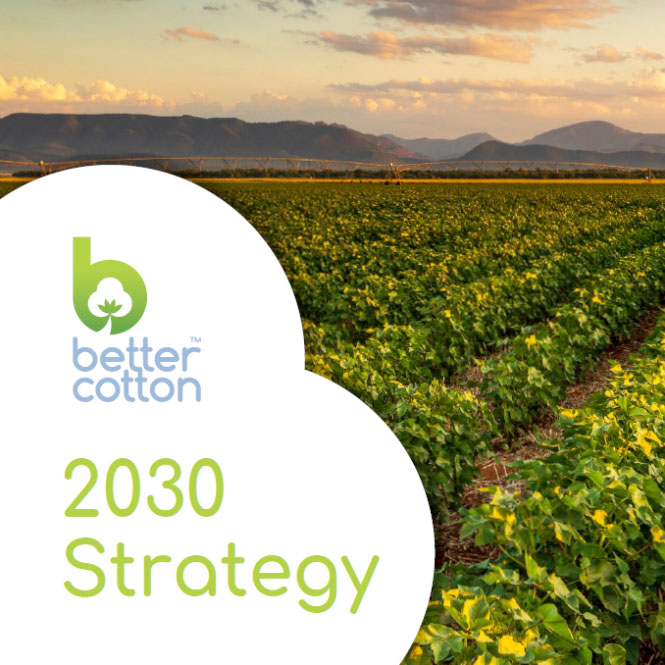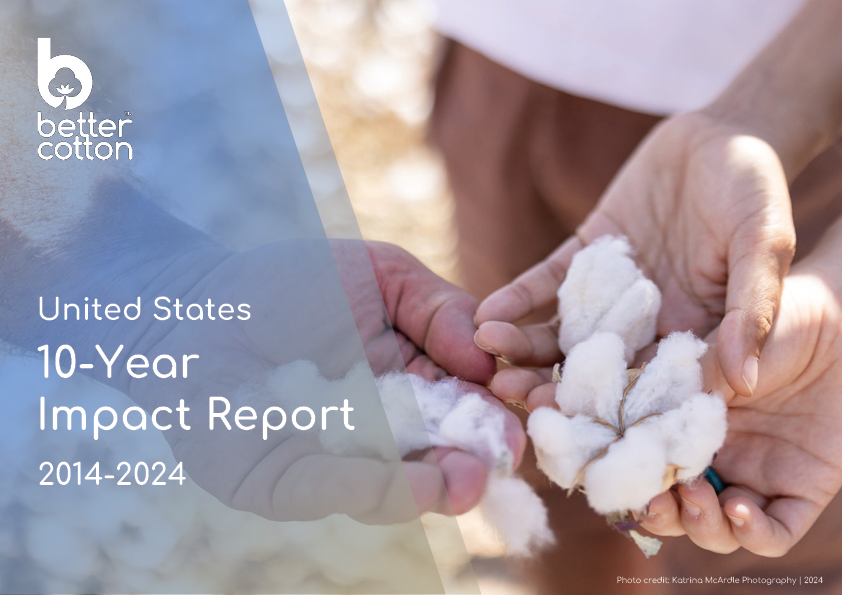- Who we are
- What we do
In just over 10 years we have become the world’s largest cotton sustainability programme. Our mission: to help cotton communities survive and thrive, while protecting and restoring the environment.
- Where we grow
Better Cotton is grown in 22 countries around the world and accounts for 22% of global cotton production. In the 2022-23 cotton season, 2.13 million licensed Better Cotton Farmers grew 5.47 million tonnes of Better Cotton.
- Our impact
- Membership
Today Better Cotton has more than 2,700 members, reflecting the breadth and diversity of the industry. Members of a global community that understands the mutual benefits of sustainable cotton farming. The moment you join, you become part of this too.
- Associate Membership
- Civil Society Membership
- Producer Organisation Membership
- Retailer and Brand Membership
- Supplier and Manufacturer Membership
- Find Members
- Member Monitoring
- Better Cotton Platform
- myBetterCotton
- Resources – Better Cotton Conference 2022
- Complaints
- Whistleblowing
- Safeguarding
- Get Involved in the Better Cotton Programme
- Thank you for contacting us
- Better Cotton’s Data Privacy Policy
- Log in
- Members’ Area
- Request for Proposals
- Better Cotton Cookie Policy
- Web Reference
- Measuring Cotton Consumption
- How to Implement the Chain of Custody Standard
- Resources – Better Cotton Conference 2023
- Certification Bodies Old
- Latest
- Sourcing
- Latest
The founding premise of Better Cotton is that a healthy sustainable future for cotton and the people that farm it is in the interests of everyone connected with it.
Let us help you find what you’re looking for
Results for {phrase} ({results_count} of {results_count_total})Displaying {results_count} results of {results_count_total}
Lupin Foundation has been a Better Cotton Initiative (BCI) field-level partner – Implementing Partner – since 2017. In the 2017-18 cotton season, the foundation began training 12,000 cotton farmers on more sustainable farming practices in line with the Better Cotton Principles and Criteria. Within one year, Lupin Foundation has rapidly expanded its programme area. In the 2018-19 cotton season, they will reach almost 40,000 cotton farmers in the Dhule and Nandurbar districts of Maharashtra. YogeshRaut, Project Manager at Lupin Foundation, tells us how the partnership with BCI is evolving and how farmers are keen to implement newly learnt sustainable practices.
- How does Lupin Foundation reach and recruit new farmers?
We hold village meetings with key community figures and cotton farmers to introduce them to BCI and Better Cotton. We also conduct door-to-door visits to reach a maximum number of farmers directly. Farmers in the Dhule and Nandurbar districts are becoming more conscious of the overuse of chemical pesticides in cotton production and are seeking ways to use organic homemade pesticides, derived from ingredients found in nature, in their place – this has increased their interest in BCI training.
- What creative initiatives do you implement to raise awareness about the challenges in cotton farming?
We run a variety of awareness campaigns in the villages where we work. To raise awareness of child labour issues in cotton farming, we have conducted children’s rallies, organised drawing competitions and held parents’ meetings in the local schools. In terms of pesticide use, we encourage farmers to develop and use homemade pesticides (derived from ingredients found in nature) and insect traps (such as pheromone traps) instead of chemical pesticides. We run hands-on training sessions where farmers can trial these practices on demonstration plots before applying the processes to their own land and crops. We also ensure farmers understand the importance of using personal protective equipment when applying pesticides to their crops.
- Can you tell us about any key developments or successes in the 2017-18 cotton season?
In the tribal village of Nandurbar, we are implementing a Tribal Development Fund Project focused on livelihood development. Lupin Foundation is also working with Niti Aayog (an Indian Government policy think-tank)on an Aspirational District Development Programme. The programme is designed to improve 49 development indicators in six key areas: health, education, agriculture, skill development, financial inclusion and rural infrastructure. The cumulative results of these projects will help to create a positive impact in the villages where many BCI Farmers live.
- Can you share an example of how BCI Farmers are applying and benefitting from the Better Cotton Principles and Criteria?
Chinchkheda village is located in the Dhule district of Maharashtra. Around 80% of farmers in the village grow cotton.Mr. Anil Bhikan Patil is one such farmer. In 2018, he joined the BCI Programme and attended numerous BCI training sessions, facilitated by Lupin Foundation. Following the training, Anil focused his attention on reducing his farming inputs –pesticides, fertilisers and water – and improving his cotton yields on his six acres of land.
In just one cotton season, he has already reduced his use of pesticides and increased his profits. One way he has managed this is by adopting the method of intercropping (growing two or more crops in close proximity to maximise resources). For the first time, he planted green gram (also known as mung bean) alongside his cotton crop. Intercropping has the potential to suppressweeds, and it has proved successful for Anil. Within one cotton season, he managed to halve the time spent weeding his crops. He has also moved away from using chemical pesticides, choosing instead to spray his crops with a natural neem extract (Neem is an evergreen tree native to India). This has helped to control pests and reduce the overall cost of spraying.
At the end of his first season trialling new farming practices, Anil managed to reduce his costs and earn additional income from the green gram.”I’m happy with my first attempt at introducing new practices. I look forward to achieving much more with Lupin Foundation and BCI and further improving my knowledge,” says Anil.
Find out more the Lupin Foundation.
© Image credit: Lupin Foundation, 2019.


